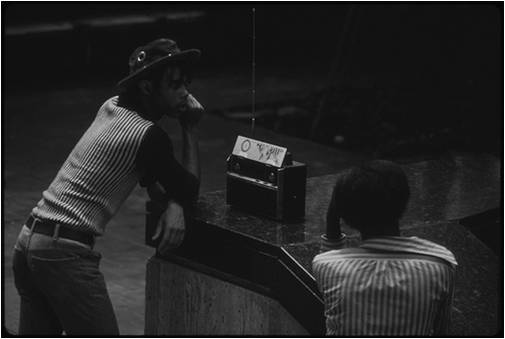 Thursday, June 14, 2012
Thursday, June 14, 2012 putting your ear in
 by Phil Jewitt
by Phil Jewitt
One of my early posts suggested that to be truly influential, you need to be effective, in both word and deed. I suggested that merely being popular doesn’t necessarily mean you are effective or influential.
I’d also suggest that to be constructively influential you need to have the respect of and respect for others and be trusted to say and do the right thing. On occasions, and as recently highlighted, this also means to not do or say things that don’t help. And we‘ve all done that and regretted it to some extent, haven’t we?
I recently read a great post by Helen Reynolds about the importance of influence. Right up my street. One of the things I took from this post was a comment “it’s not always about doing better things, it’s about doing things better”.
Recently I’ve been meeting people across my organisation and city to get an appreciation on their views on just that. Some of the topics discussed and projects involved are huge. I know there won’t be total unity on everything and I also know that some things will never be perfect first time – they just won’t, not that we shouldn’t try! But waiting til they are sometimes isn’t an option; life goes on.
To me, it’s about recognition of the opportunity to build on foundations of what collaborations produce, rather than dwelling on the ‘could have beens’. Could have beens are future opportunities to get hold of and deliver.
I think there’s a fine line between being overly vocal and raising a valid point – look what crying wolf did. I’ve blogged about this before and there was a related post also this week by welovelocalgov about balancing being critical. Managing that fine line can make the difference between turning people away or in engaging them further. Managing your ‘critical friend' or 'positive disruptor’ role is a difficult one to get right.
And I admire those who take on that role, both within my organisation and outside.
Delivering big projects across a city involves groups/organisations/residents/businessses working together, collaborating, negotiating, meeting, getting on, compromising, regrouping......agreeing on common ground and agreeing to disagree. All have their own interests and preferred outcomes. Success involves forming and maintaining relationships with those who may have alternate views. It involves creating a conversation but also being prepared to go where the conversation is; not necessarily interrupting but being prepared to be asked or to contribute but importantly being prepared to listen – to include the potential ‘could have beens’. It’s about being honest and open and most importantly managing expectations of what is possible and what isn’t and therefore being prepared to explain why something isn’t possible if it isn’t.
This can be a scary place to be, but actually a rewarding place to go to try and find positive dialogue and seek the alternate perspective.
So what interests me is; what is a ‘good enough consensus’? What elements bring about the optimum balance between ‘doing things better’ and ‘doing better things’? Possibly a bit deep – hence me asking for your views.
I perhaps think it’s probably a bit of both, but can’t put my finger on what or how exactly, but I know it’s about conversation and mutual respect of opinions.
If respect and trust isn’t there then it’s a bumpy ride, and none of us like that.
Phil Jewitt is senior communications manager, strategy and resource, at Leeds City Council
Sign up for our weekly email digest. You can do that here.















Reader Comments (2)
I haven't got a link handy, but there have been a few great reports on a group of female U.S. Senators who gather regularly for dinner. They keep politics off the menu but everything else, including conversations about the challenges of being female politicians, are fair game. Indeed, that's the whole point of the get-togethers. The intended result is to build positive relationships among themselves. This doesn't result in them agreeing or changing one another's positions—Senators don't do that easily—but it sets foundations of common respect and trust upon which potential solutions can be built. That is, the 'better things' as you call it.
It's hard to hate someone you've broken bread with. That's the first step towards comity, which is often the first step towards progress. And all of that begins with quality communications.
I totally agree with Packherd about positive relationships providing foundations for potential solutions to be built and what a great example you provided. I’ve recently seen a couple of examples in the wider blogging world where y part of an organisation said it would have been better if x part had contributed more or where comms or IT let the side down or it was Z’s fault. Easy to say with hindsight but it doesn’t actually help to do it publicly and it won’t make the start of the next collaboration any easier.
I also agree with the last point and from a comms perspective, I think it’s crucial that there’s consistency in message about the ‘better things’. And this includes honest discussion and agreement upfront that if there is service provision in any organisation that is actually not ‘better’ or a message of bad news, then the lipstick on a pig treatment or sugar coating is most definitely not one of the ‘doing things better’ communication approaches. It will be seen through and provide fuel for the doubting Thomases.
So I suppose what I’m saying is, a communicator’s influencing skills are crucial in setting a realistic expectation level in a message or call to action and therefore in managing how great or bad news is delivered and received.
So quality communications begins with respect, honesty and influence.